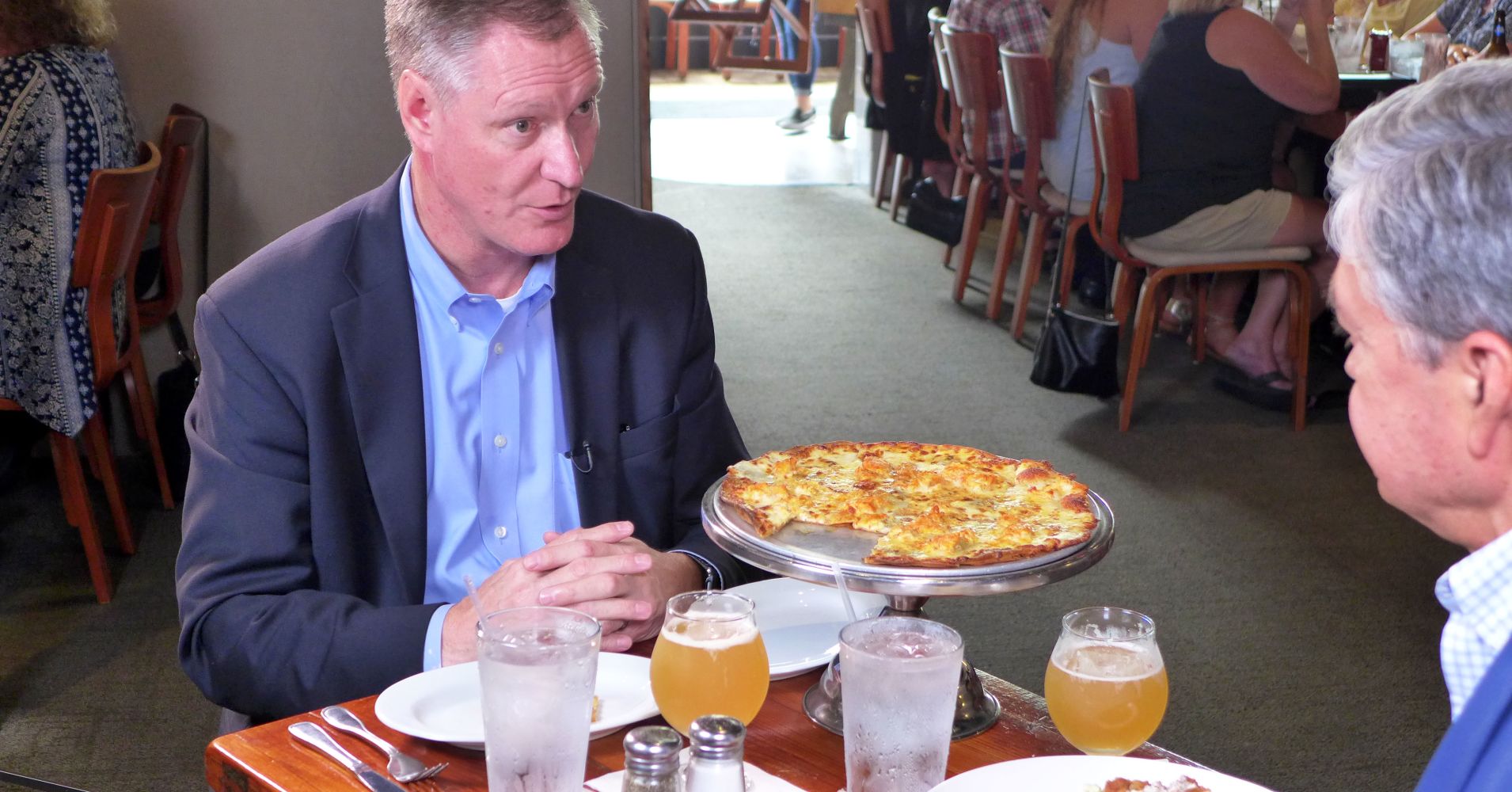Rep.
Steve Stivers
, R-Ohio, has the toughest job in politics right now: trying to stop a Democratic “blue wave” at the polls this fall. Stivers, chairman of the National Republican Congressional Committee, sat down to talk to CNBC’s John Harwood about the campaign and other factors. Here is an excerpt from the interview:
CNBC’s John Harwood: You were, during the Obama administration, a big critic of rising levels of national debt. We see the deficit going up to $1 trillion next year, debt levels are rising. About the tax cut: Did you guys go about it the wrong way?
Rep. Steve Stivers: I don’t think we did. I think you’ll see the economic growth will actually reduce the deficit a bit from the projected levels. And I think there’s still an opportunity to continue that growth.
Harwood: No misgivings about a tax cut that was not paid for, that’s allowing debt and deficits to rise like it is now?
Stivers: I do think we need to deal with our some of our spending. We’ve got to try to figure out how to spend less.
Harwood: Entitlements? Social Security, Medicare?
Stivers: Yeah, I mean, what I think we need to do is get some people who are now on government programs jobs, we have more open jobs than we have people on unemployment. So if we could get people to go from unemployment, or a government program, to become a taxpayer, it’s a twofer because not only are they getting less government assistance, they probably have a better life economically and they’re actually paying taxes.
Harwood: You’re talking here about Social Security disability?
Stivers: I’m talking about a lot of programs. A lot of those people, there’s a skills gap. You have to give them the skills they need for the jobs that are available today. I don’t want to be, you know, mean and kick people off of programs, but the way I’d like to see us do it is in the benefit cliffs and create ramps where the more people earn. It might cost them a little more for their social subsidy, but they actually can keep their Medicaid expansion, or they can keep their housing, but they actually have an incentive to take that pay raise and do better and pay more taxes.
Harwood: Your speaker, Paul Ryan, has said the biggest spending issues are in those big entitlement programs, Medicare and Social Security, as opposed to food stamps or welfare or that sort of thing.
Stivers: They are. And we have 10 million people on Social Security disability now — actually, 11 million — more than any time in history. And some of those people can’t work at all, but many of those people can’t work in the job they used to be in. And if we gave them some training, let them keep making a portion of the Social Security disability, but put them back to work, it would be a net win for the individual.
Harwood: But also Social Security and Medicare, right?
Stivers: The only way we’re going to be able to fix Social Security and Medicare is for the two parties to come together — the way that Ronald Reagan did with Tip O’Neill — and figure out how to fix them together. I hope we can do that, I believe it’s the right thing to do.
Harwood: Retirement age?
Stivers: We need to come together. I think we need to say, “You give a little, we give a little,” and figure out how to sustain Medicare and Social Security into the future. The other thing on Medicare is we have to bend the cost curve on health care.
Harwood: Do you like the Ryan proposal on premium support for Medicare?
Stivers: I voted for it. I think it’s a way forward. It’s not the only way forward. Instead of dictating the ideas that are acceptable, I’d rather work with Democrats and Republicans and say, “What can we all come together to find acceptable?”
Harwood: Are taxes part of that solution?
Stivers: I think we have to have some change as part of that, whether you eliminate the people in the upper economic end from receiving the benefit, or you have them pay more, or you index the wage, it has to be part of the discussion.


 Signal2forex.com - Best Forex robots and signals
Signal2forex.com - Best Forex robots and signals




